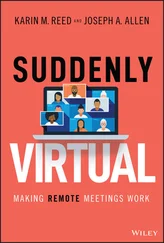After a week of intermittent sleeping and wakefulness, Ernst’s face is still pale and his jaws still sunken, but the spark of life has returned to his eyes. He tries to get out of bed. Irena hands him crutches, and he grabs them, raises himself, and stands up.
“Another trial,” he says and begins to walk toward the bathroom.
Now, too, it seems Ernst remembers nothing of what had happened to him. Irena tells him that robbers broke into his apartment and stole his wallet and his watch.
“And they didn’t touch my books or manuscripts?”
“They just scattered them.”
“Quite a robbery!” he says and chuckles.
Interesting , Irena says to herself. It’s important for him to know that the manuscripts weren’t destroyed, which means that they’re important to him. Why did he order me to burn them?
Many thoughts go through her mind, but they don’t for a moment distract Irena from her devotion to Ernst. She is entirely given over to him. Although the sparkle has returned to his eyes, his thoughts are still scattered and jump from one thing to another. One night he tells her again about his service in the Red Army. She has noticed: Ernst doesn’t tell a story all at once. First he prepares the heart, traces the framework, and gradually brings the images into it.
“I was at the front for a year and a half. They were marvelous times. I loved the soldiers, and they loved me. They were downtrodden, most of them were drunkards, and they revered Stalin and Jesus. Their ideas were a mixture of Communist propaganda and the beliefs that their mothers transmitted to them in secret. I was with them from the Ukraine to Berlin, and we felt that we were chopping down the writhing Nazi monster that extended up to Stalingrad and from there was trying to dominate all of Russia. Our cannons thundered and our tanks raced forward, and the sense of destruction swept us along and delighted us. Every one of us, Jew and non-Jew, was wounded. This one had lost a brother, that one, his mother. We were fired up with feelings of vengeance that drove us and urged us on. They called us the ‘iron panthers,’ and we really were panthers.
“In those marvelous days we forgot the evil of communism; we were united by one impulse: to drive out the twisted Nazi serpent. After conquering a village, a provincial city, or a railway station we would celebrate and get drunk. Plundering was the order of the day; drunkenness was widespread. Women were raped in houses and yards, but we felt that we were cutting the Nazi serpent into pieces.
“But after that, at the end of the war, on the golden beaches of Naples, on the way to Israel, I lost my will. That was when the first seeds of despair were sown. At first I didn’t know it was despair. It appeared as though the other refugees were in despair, not I.”
Ernst continues telling his story, but after half an hour he begins to doze off. When he’s asleep, the firmness in his face doesn’t fade. Irena prays with all her heart that he’ll recover, that he’ll return to his desk and to his enchanting habits. Once when he woke up he told her, “I didn’t understand that it was just the beginning of the struggle then.”
“What is the struggle about?” Irena wants to know more.
“About having a clean mind and a life with a purpose.”
Ernst dozes for most of the day. One time he uttered a few long sentences, complex and incomprehensible. Another time he shouted, “We will drive out the serpent no matter what!” Irena was alarmed and approached him cautiously. Now his sleep is sound, like that of a soldier. Soon they’ll wake him, or he’ll wake himself up. Without delay he will put on his uniform and set out for his unit. Apparently the unit is already standing in formation, ready for his orders.
A WEEK AGO IT APPEARED AS THOUGH ERNST WOULD BE fully recovered in a few days. This proved to be merely wishful thinking on Irena’s part. Ernst still writhes in pain, and his heart is not beating as regularly as it had been before the attack. But in between stabs of pain he engages in conversation with Irena. Usually he talks and Irena listens. Sometimes she asks him about a word or a concept. Ernst in the hospital is a different Ernst. Now one can see him as the Red Army officer that he once was. He doesn’t grumble about his pain but jokes about it instead. It’s annoying, he says, not only denying him movement but also forcing him to deal with his body and to trouble the people around him. A person ought to be self-sufficient and not bother a whole medical staff, he says. If Ernst knew how much Irena yearned to help him, he would not refer to her efforts as “trouble.”
“Is she your daughter?” one of the nurses asked, observing Irena’s devotion.
Ernst wasn’t put off by the question. “Does she look like me?” he asked.
“A lot.”
“Then she’s my daughter.”
One evening, when the pain had subsided, Ernst spoke about his parents again. “It seemed to me then,” he said, “that they were competing with each other, who could keep silent longer. I had plenty of words then, words from the books I read and words that the Party stuffed me with. When I would open my mouth and talk, they would both stand there and wonder where I had gotten so many words. I didn’t understand the meaning of their silence, and this would drive me crazy. I was sure that only someone who presents facts, analyzes them, and explains them was worthy of being counted as part of the human race; the others were clods who had to be guided and taught. I admired explainers, people with a doctrine who knew what was good and what was bad. I thought stammering was a flaw. I was sure that one day they would send all the stammerers to special schools to correct their speech. There were months when I ignored my parents, as if they didn’t exist. They didn’t dare ask me what I was doing or what I planned to do. I saw their silence as annoying inertia and submission. I was glad to leave the house. Whenever I came to visit, my mother would stuff a banknote or two into my pocket, and that always stung, as if I had deceived them or stolen from them.
“I hated their passivity. ‘You have to coax customers,’ their neighbors kept advising them. ‘A customer won’t buy unless you coax him, show him, and convince him that the merchandise is good. Without persuasion, there are no sales.’ ‘Right,’ my father would say, but he didn’t change his ways. Not only were they both laconic; they also had an aversion to overdoing, to too much interference. I didn’t understand their focus on themselves, their way of walking about on tiptoes, their constant mindfulness. Everything within them was derived from fear, from prolonged, static ignorance, from an unwillingness to adhere to great beliefs and take action on behalf of the general good. All I saw was how miserable they were. Only over the past few years did I come to understand that my parents bore within them an ancient heritage from which they had been cut off. Perhaps they themselves didn’t realize it, but their behavior bespoke a nobility that had been diminished and had lost its value. Only during the past few months, in fact, did their silence palpably return to me. It was a silence born of a nobility that extended back for many generations, generations that have taught themselves this silence. They understood that life is short, incomprehensible, and ugly and that speaking didn’t necessarily add to understanding.
“Unfortunately, my parents had lost the positive silence of their ancestors, the silence that is prayer and connection with the God of their fathers. What remained with them was only a barren silence, without any connection to heaven, just a noble despair.”
Ernst stopped speaking, and Irena felt that this was a kind of pain that he had never before revealed to her.
Читать дальше












